Owning a dog is a rewarding experience, but some breeds can be more of a handful than others. Whether it’s grooming needs, exercise requirements, or health concerns, some dogs demand more of your time, energy, and resources. If you’re thinking about adding a furry companion to your life, it’s essential to know which breeds require the most effort. Here’s a list of 15 dog breeds that are known for being particularly high-maintenance. This doesn’t mean they aren’t worth it, just that you’ll need to be prepared for the commitment.
1. Afghan Hound
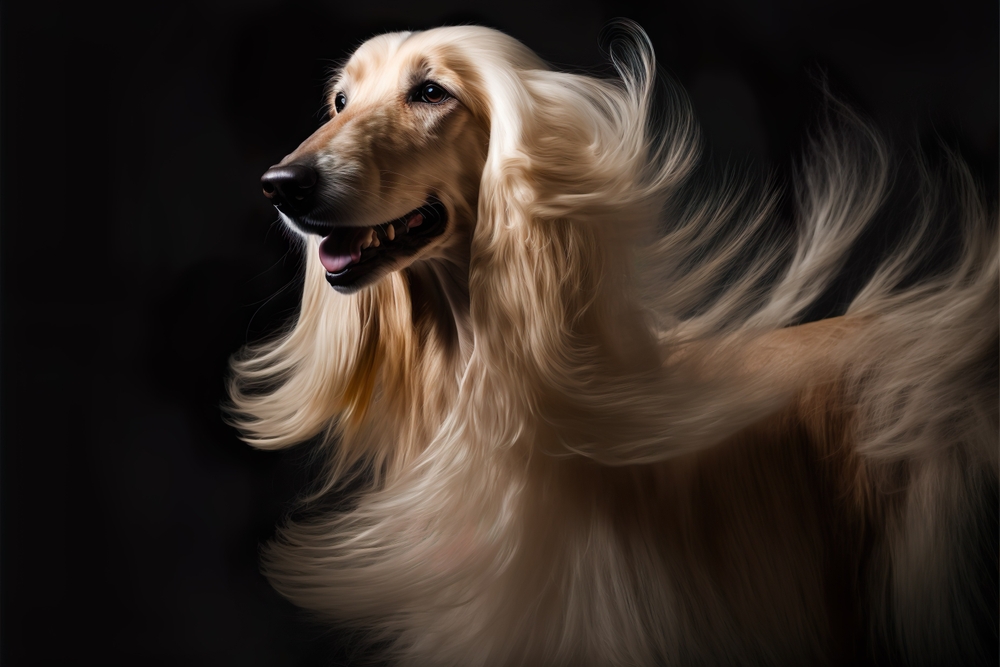
Afghan Hounds are well-known for their stunning beauty and elegant appearance, but that comes with a price. Their long, flowing coats require consistent grooming to prevent matting and tangling, which means daily brushing and regular trips to a professional groomer. According to the American Kennel Club, Afghan Hounds’ grooming needs are among the highest of all dog breeds. This breed also requires a lot of exercise due to their energetic nature and hunting instincts. If you’re not an active person, keeping up with the demand for physical activity can be a challenge.
In addition to their grooming and exercise needs, Afghan Hounds are known for their independent and sometimes aloof personalities. Training them can be a test of patience, as they may not respond as quickly or eagerly as other breeds. They require a confident owner who can establish themselves as the leader of the pack. Socialization from a young age is crucial to prevent them from becoming overly reserved or shy. Despite these challenges, Afghan Hounds are incredibly loyal and loving pets for those willing to put in the effort.
2. Border Collie
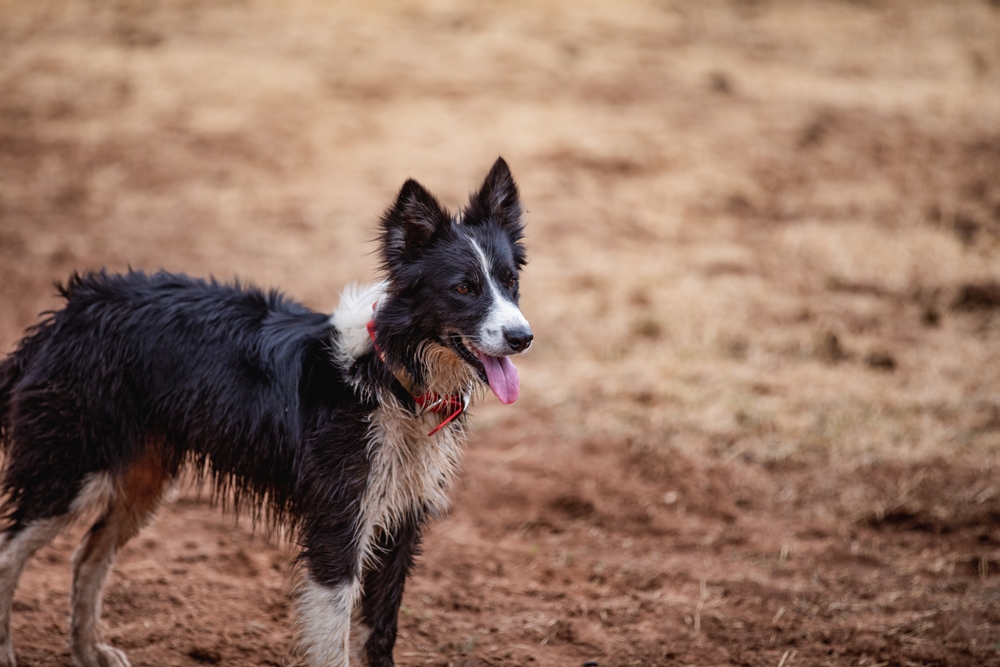
Border Collies are often celebrated as one of the most intelligent dog breeds, but with intelligence comes the need for constant mental stimulation. These dogs excel in activities like agility, obedience, and herding, which means they require a lot of your time and attention to keep them occupied. A bored Border Collie can become destructive, channeling their energy into chewing or digging. They also need plenty of physical exercise, making them ideal for active families who are willing to take them on long walks, hikes, and runs.
Training is essential for Border Collies, but their intelligence means they pick up commands quickly, often learning new tricks in just a few sessions. However, this intelligence also means they can outsmart their owners if not properly managed. Consistent training and clear boundaries are necessary to keep them well-behaved. They thrive on having a job to do, so involving them in dog sports or activities can be a great way to satisfy their work ethic. Overall, they make wonderful pets for those who can meet their mental and physical demands.
3. Poodle
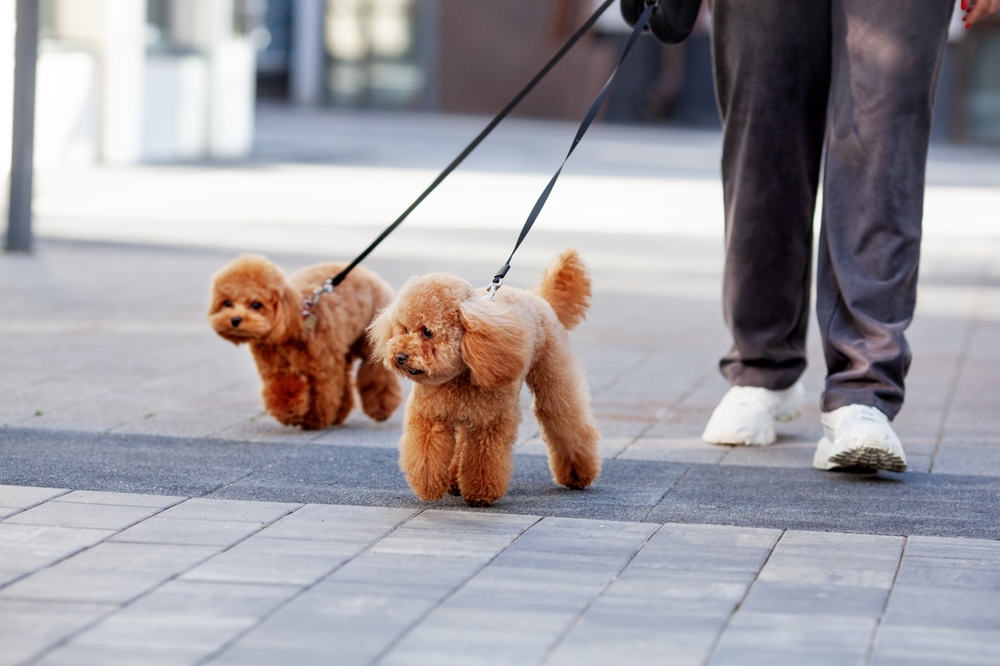
Poodles all require significant grooming attention. Their curly coats need regular maintenance to avoid matting, including brushing several times a week and trips to a professional groomer every four to six weeks. Stanley Coren, a psychologist and canine researcher, notes that Poodles are among the most intelligent breeds, which requires owners to provide ample mental stimulation. Without it, they can become bored and engage in undesirable behaviors like excessive barking or chewing. Despite the grooming and mental exercise needs, Poodles are known for their friendly and social nature.
Their keen intelligence also means Poodles are highly trainable, often excelling in obedience and agility competitions. However, their sensitivity requires a gentle hand during training, as harsh methods can lead to fearfulness or anxiety. Poodles are also known for being great family dogs, getting along well with children and other pets. Socialization is key from an early age to ensure they grow up to be well-rounded adults. For those who are committed, Poodles make charming and loyal companions.
4. Siberian Husky
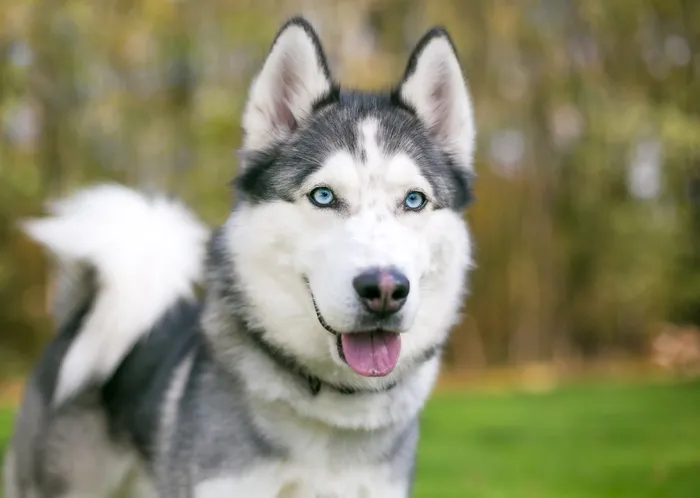
Siberian Huskies are striking dogs with their wolf-like appearance and piercing blue eyes, but they are not for the faint of heart. These dogs have a strong prey drive, meaning they’re inclined to chase anything that moves, which necessitates a secure yard or always keeping them on a leash. Huskies are also known as escape artists, so you’ll need to ensure your home is husky-proof to prevent them from digging under or jumping over fences. Their thick double coat requires regular grooming, especially during shedding season when they lose a significant amount of fur.
Additionally, Siberian Huskies are known for their boundless energy and need for exercise. They were bred for pulling sleds over long distances, so they require daily vigorous physical activity to keep them happy and healthy. Without enough exercise, they can become bored and destructive, often resorting to chewing furniture or howling. Training a husky requires patience, as they can be stubborn and independent, often testing their owner’s boundaries. Owning a Husky can be incredibly rewarding, but it demands a high level of commitment and energy.
5. Samoyed
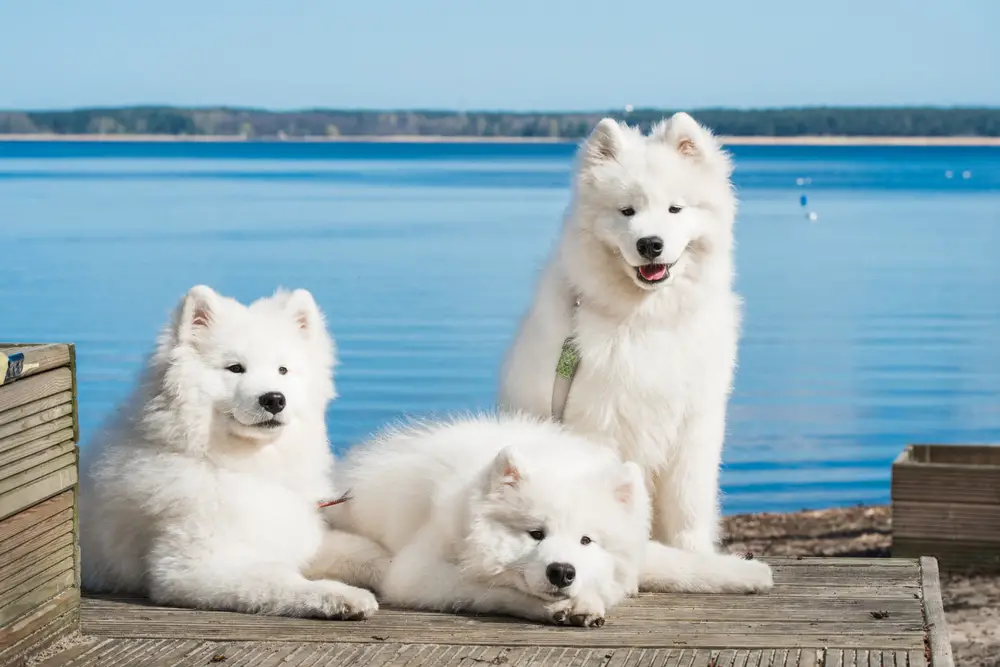
Samoyeds are known for their beautiful white coats and their signature “Sammy smile,” but their grooming needs are not to be underestimated. Their thick, fluffy fur requires frequent brushing to prevent mats and tangles, especially during the shedding seasons. According to Lisa Peterson, a spokesperson for the American Kennel Club, Samoyeds have a coat that requires more maintenance than most other breeds. These dogs also have high energy levels, needing regular exercise to keep them from becoming bored and destructive. Despite their grooming and exercise needs, Samoyeds are known for their friendly and affectionate nature.
Training a Samoyed can be a challenge, as they can be independent and sometimes stubborn. Consistent and positive training methods work best with this breed, as they respond well to praise and treats. Socialization from a young age is crucial for Samoyeds, as it helps them grow into well-adjusted adults. They are known for being great with children and other animals, making them an excellent choice for families. With the right care and attention, Samoyeds make loving and devoted pets.
6. Dalmatian
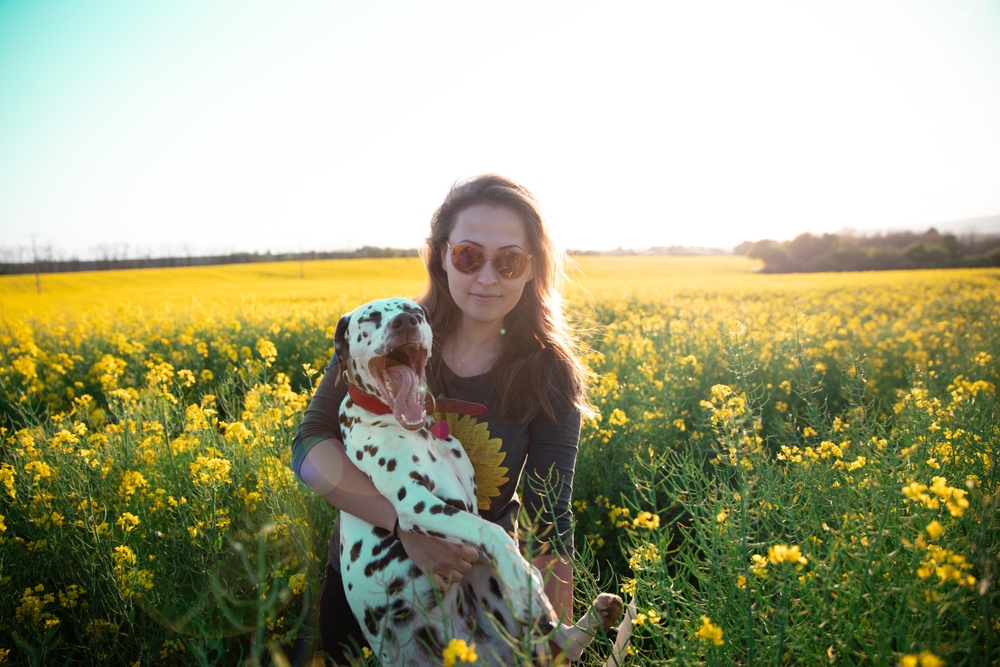
Dalmatians are famous for their distinctive spots and high energy levels, which make them both eye-catching and demanding. This breed requires a significant amount of daily exercise to keep them happy, healthy, and out of mischief. Long walks, runs, or play sessions are a must, as a bored Dalmatian can become destructive. They also have a strong prey drive, so training and socialization are key to making sure they behave well around other animals. Their short coats are relatively low maintenance in terms of grooming, but they do shed consistently.
Training a Dalmatian requires patience and consistency, as they can be stubborn and independent. Positive reinforcement methods work best, as they respond well to praise and treats. Dalmatians are known for being protective and loyal to their families, but can be reserved with strangers. Socialization from an early age helps them become more confident and well-rounded. With the right amount of exercise and training, Dalmatians can be incredibly rewarding pets.
7. Chow Chow
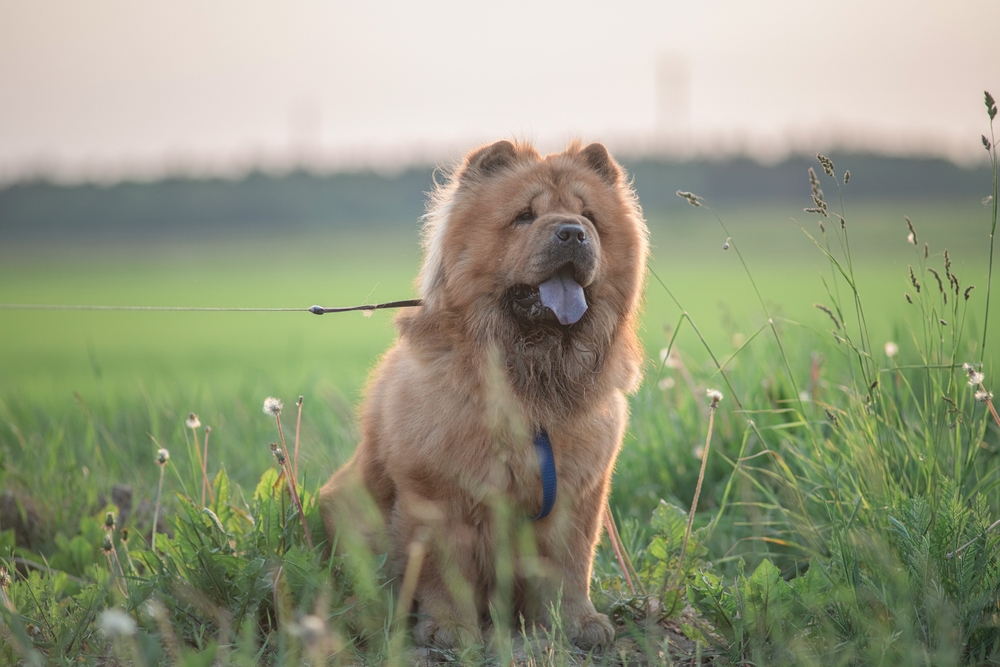
Chow Chows are known for their lion-like appearance and aloof personalities, which require a unique approach to ownership. Their thick double coat is high-maintenance, needing regular brushing to prevent mats and tangles, especially during shedding seasons. Dr. Stanley Coren notes that while Chow Chows are less energetic than other breeds, their grooming needs can be quite demanding. These dogs are reserved and independent, often requiring an experienced owner who understands how to handle their unique temperament. Despite their grooming needs, Chow Chows are known for their loyalty to their families.
Training a Chow Chow can be challenging due to their stubborn and independent nature. They require consistent and positive training methods from an early age to ensure they grow into well-behaved adults. Socialization is also crucial, as they can be wary of strangers and other animals if not properly introduced to new experiences. While they may not be the most outgoing dogs, Chow Chows form strong bonds with their families. For those willing to put in the effort, they make devoted and protective companions.
8. Old English Sheepdog
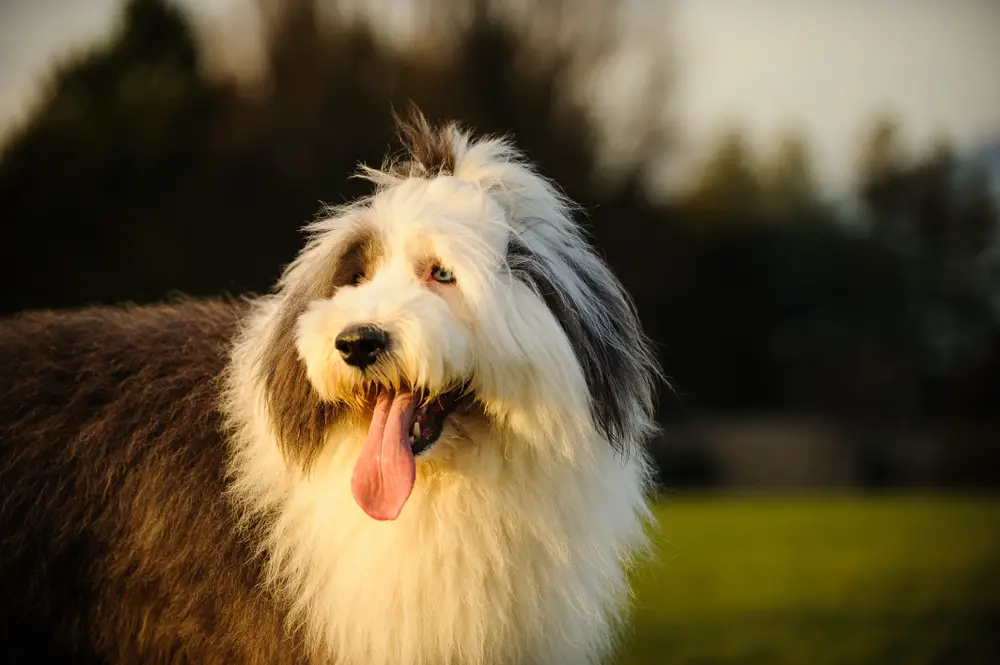
The Old English Sheepdog is famous for its shaggy, fluffy coat, making it one of the most recognizable breeds. However, that coat requires a lot of maintenance to keep it looking its best. Regular grooming is essential to prevent matting, and professional grooming every six to eight weeks is often recommended. In addition to their grooming needs, Old English Sheepdogs are energetic and require regular exercise to keep them happy and healthy. They thrive in active households where they can participate in outdoor activities and adventures.
Training is important for Old English Sheepdogs as they are intelligent and can become stubborn if not properly managed. Positive reinforcement and consistency are key when training this breed, as they respond well to rewards and praise. Socialization from a young age helps them grow into well-adjusted adults, as they can be wary of strangers if not properly introduced to new experiences. Despite their grooming and exercise needs, Old English Sheepdogs are known for their loyalty and affectionate nature. For those who can meet their demands, they make loving and devoted pets.
9. Belgian Malinois
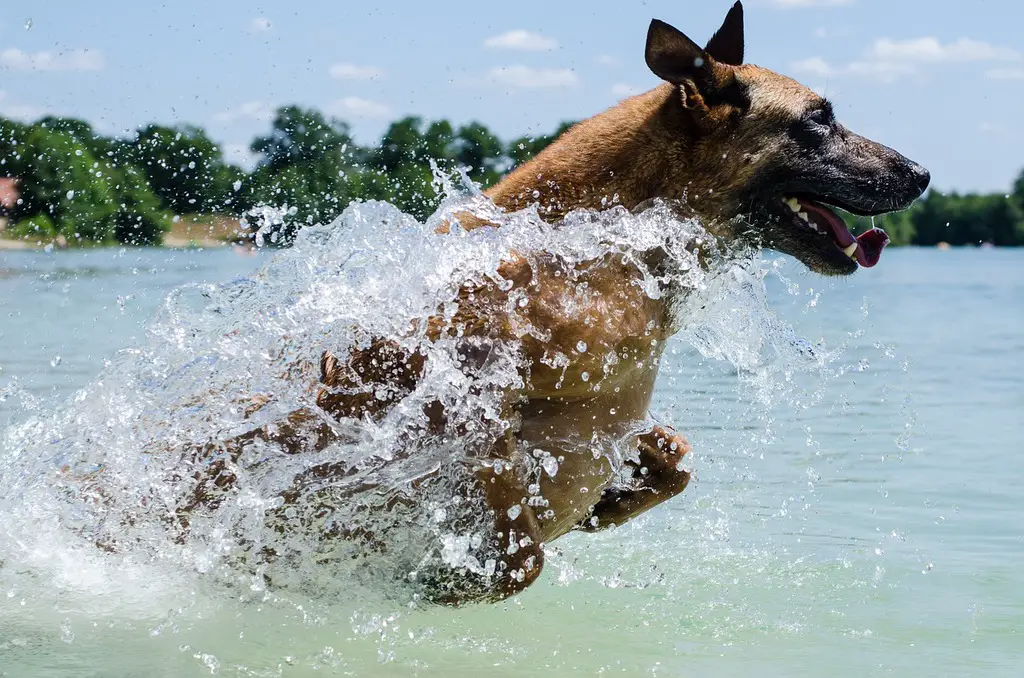
The Belgian Malinois is a highly intelligent and energetic breed, often used in police and military work due to its trainability and work ethic. However, this also means they require a significant amount of mental and physical stimulation to keep them happy. Without enough exercise and engagement, they can become bored and destructive, often resorting to chewing or digging. Their short coat is relatively low maintenance in terms of grooming, but they do shed consistently. Belgian Malinois are best suited for active families or individuals who can devote time to their training and exercise needs.
Training a Belgian Malinois requires dedication and consistency, as they are intelligent but can be stubborn if not properly managed. Positive reinforcement methods work best, as they respond well to praise and treats. Socialization from a young age is crucial for this breed, as it helps them grow into well-rounded adults. They are known for being protective and loyal to their families, often forming strong bonds with their owners. For those who can meet their demands, Belgian Malinois make incredible companions and working dogs.
10. Yorkshire Terrier
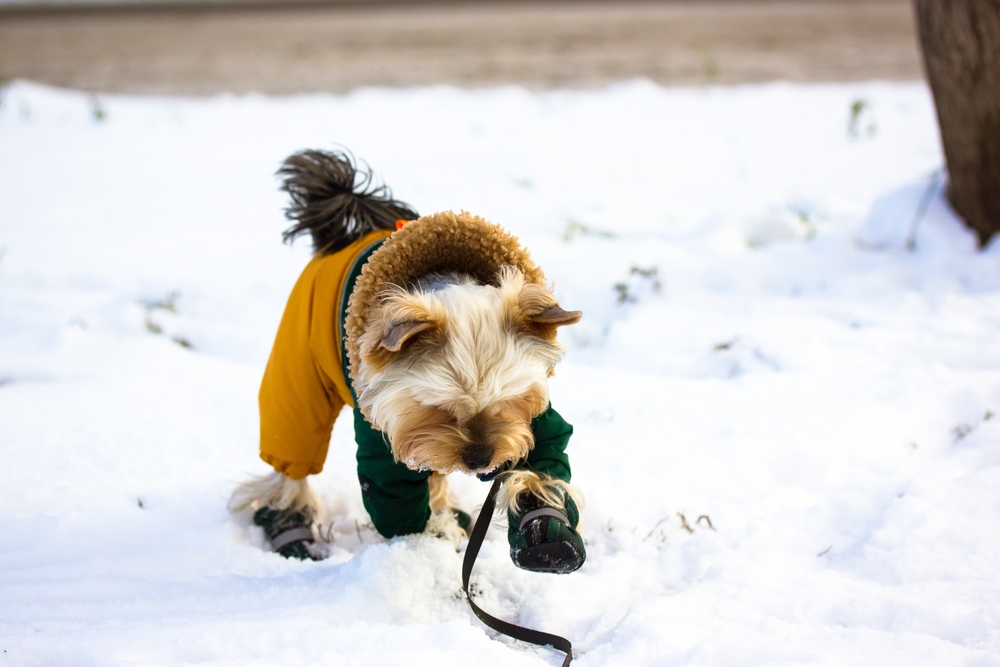
Yorkshire Terriers, or Yorkies, are small in size but big in personality, often requiring as much attention as larger breeds. Their long, silky coats require regular grooming to prevent matting and tangling, including daily brushing and regular trips to a professional groomer. Despite their small size, Yorkies are energetic and require regular exercise to keep them happy and healthy. They enjoy walks and playtime, but their small size means they can get their exercise needs met indoors as well. However, their grooming and personality needs can make them a high-maintenance choice.
Training a Yorkshire Terrier requires patience and consistency, as they can be stubborn and independent. Positive reinforcement methods work best, as they respond well to praise and treats. Socialization from a young age helps them become more confident and well-rounded, as they can be wary of strangers if not properly introduced to new experiences. Despite their grooming and exercise needs, Yorkies are known for their loyalty and affectionate nature. For those who can meet their demands, they make loving and devoted pets.
11. Akita
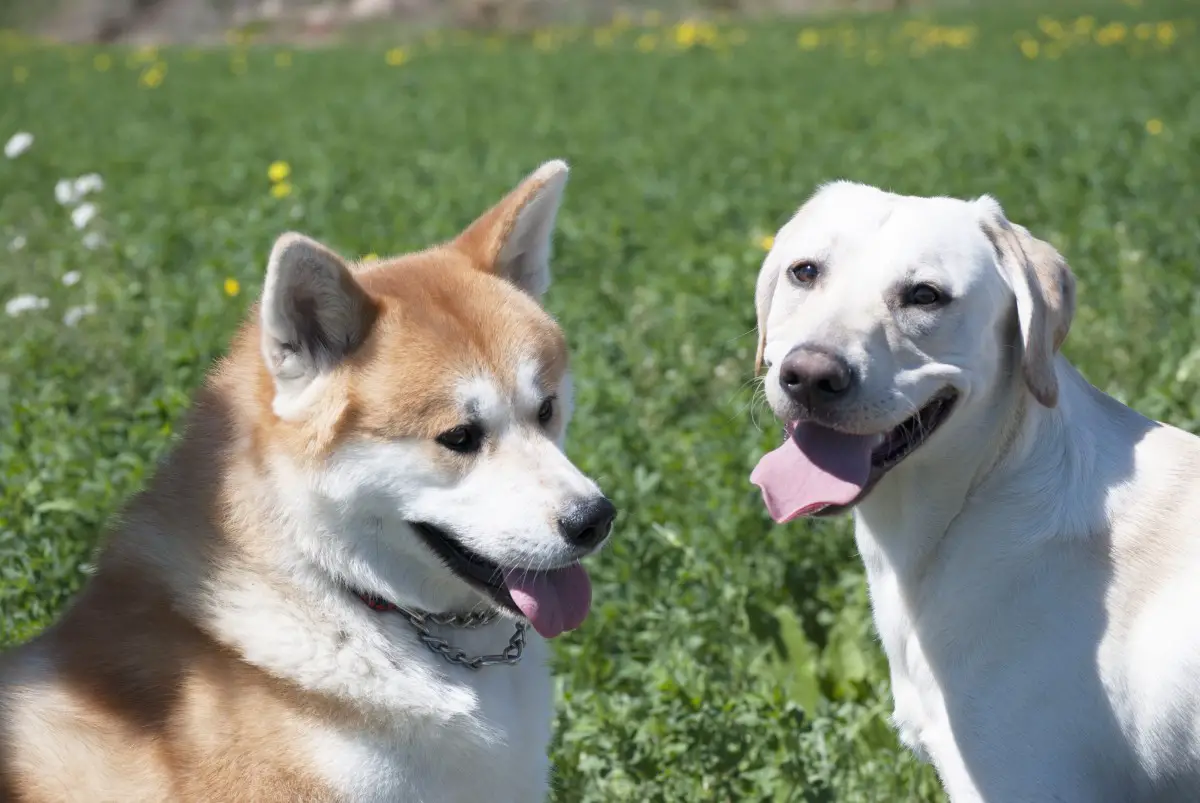
Akitas are known for their powerful build and dignified appearance, but they require an experienced owner who can handle their strong-willed nature. Their thick double coat requires regular grooming, especially during shedding seasons when they lose a significant amount of fur. Akitas are also known for their independent and sometimes aloof personalities, which can make training a challenge. They require a confident owner who can establish themselves as the leader of the pack and provide consistent and positive training methods. Despite their grooming and personality needs, Akitas are known for their loyalty to their families.
Socialization is crucial for Akitas, as they can be wary of strangers and other animals if not properly introduced to new experiences. They also require regular exercise to keep them happy and healthy, making them ideal for active families who enjoy outdoor activities. Training an Akita requires patience and consistency, as they can test their owner’s boundaries. Positive reinforcement methods work best, as they respond well to praise and treats. For those who can meet their demands, Akitas make incredible companions and protective family members.
12. Bichon Frise
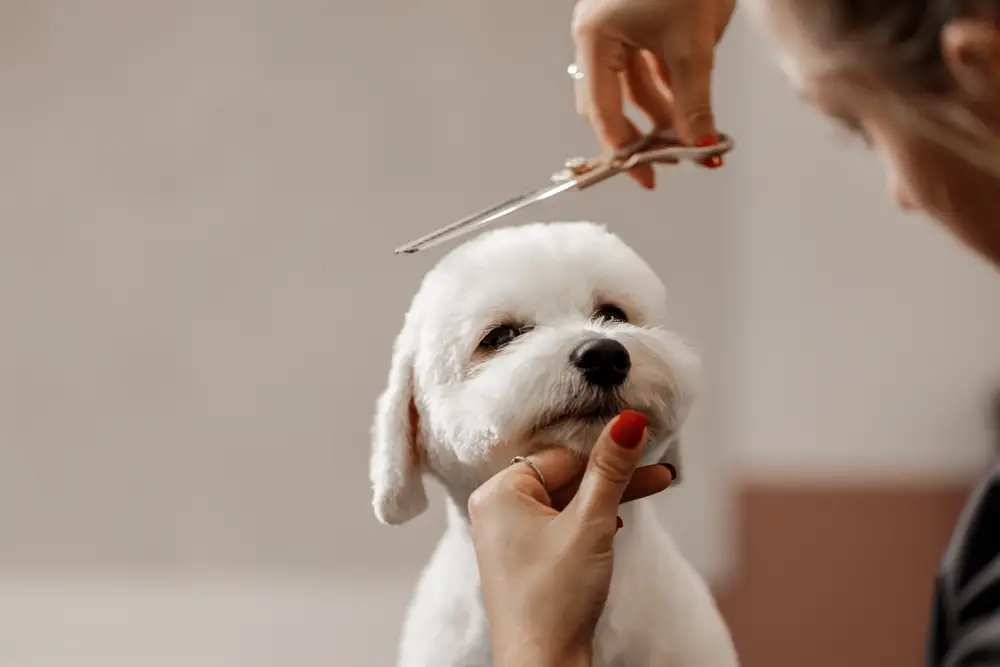
The Bichon Frise is a small breed known for its fluffy white coat and cheerful personality, but that coat requires a lot of maintenance. Regular grooming is essential to prevent matting, and professional grooming every four to six weeks is often recommended. Despite their grooming needs, Bichon Frises are known for being friendly and social dogs, making them great companions for families and individuals alike. They enjoy regular exercise and playtime, often thriving in households where they can participate in daily activities. However, their grooming and exercise needs can make them a high-maintenance choice.
Training a Bichon Frise requires patience and consistency, as they can be stubborn and independent. Positive reinforcement methods work best, as they respond well to praise and treats. Socialization from a young age helps them grow into well-rounded adults, as they can be wary of strangers if not properly introduced to new experiences. Despite their grooming and exercise needs, Bichon Frises are known for their loyalty and affectionate nature. For those who can meet their demands, they make loving and devoted pets.
13. Australian Shepherd
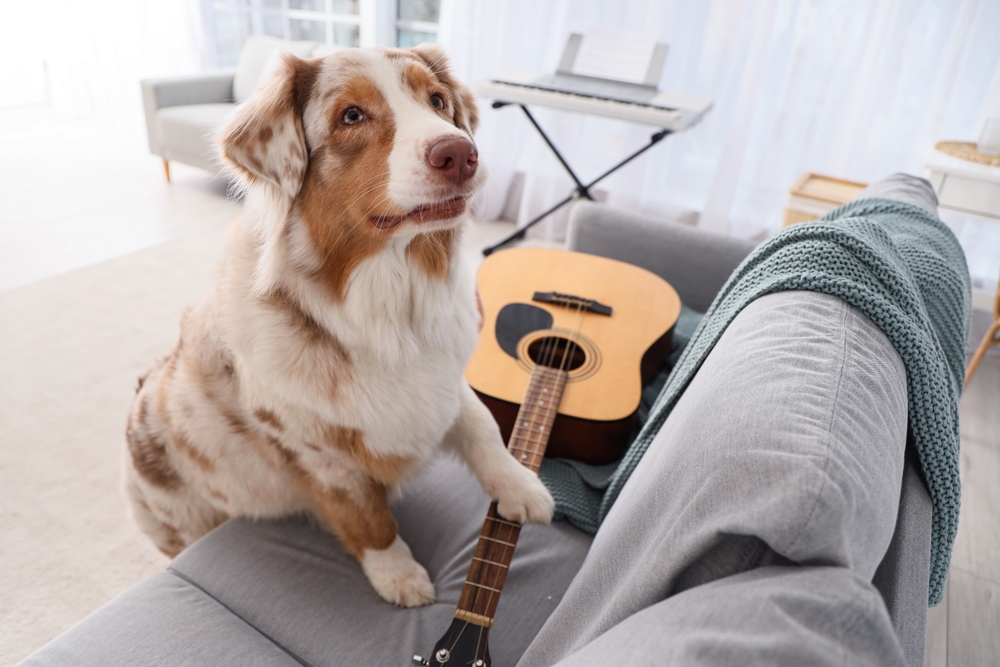
Australian Shepherds are known for their intelligence and work ethic, making them one of the most versatile breeds. However, this also means they require a significant amount of mental and physical stimulation to keep them happy. Without enough exercise and engagement, they can become bored and destructive, often resorting to chewing or digging. Their double coat requires regular grooming, especially during shedding seasons when they lose a significant amount of fur. Australian Shepherds are best suited for active families or individuals who can devote time to their training and exercise needs.
Training an Australian Shepherd requires dedication and consistency, as they are intelligent but can be stubborn if not properly managed. Positive reinforcement methods work best, as they respond well to praise and treats. Socialization from a young age is crucial for this breed, as it helps them grow into well-rounded adults. They are known for being protective and loyal to their families, often forming strong bonds with their owners. For those who can meet their demands, Australian Shepherds make incredible companions and working dogs.
14. Shih Tzu
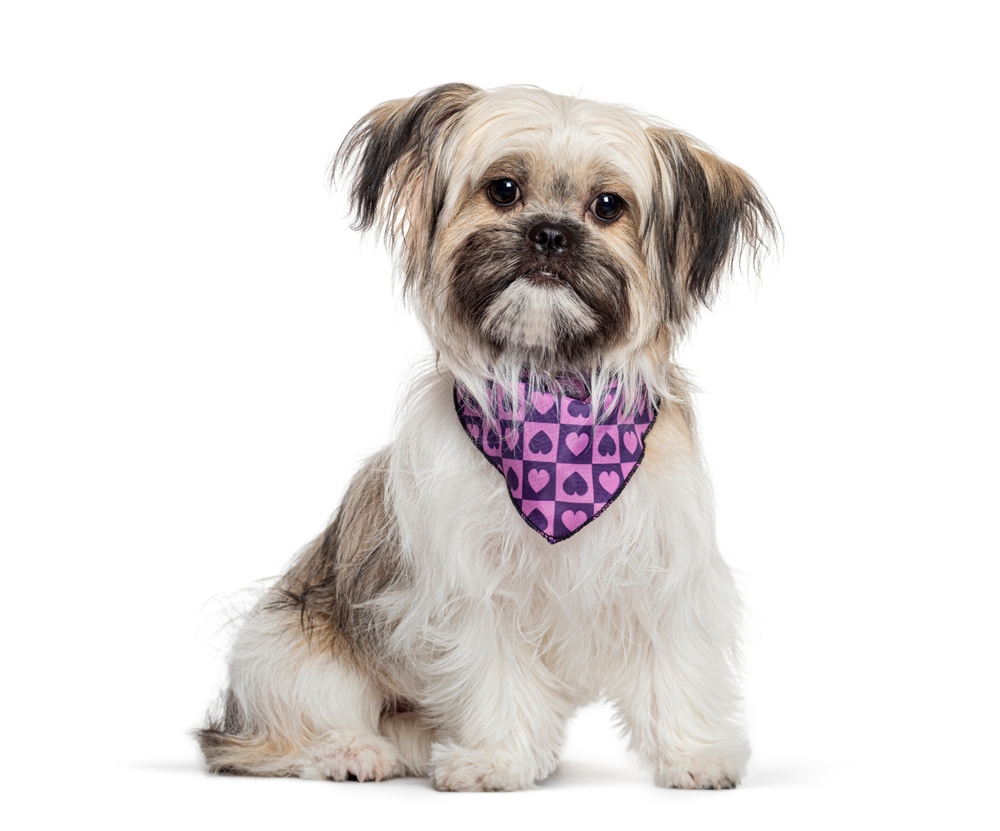
Shih Tzus are small but mighty, often requiring as much attention as larger breeds due to their grooming needs. Their long, flowing coats require regular maintenance to prevent matting and tangling, including daily brushing and regular trips to a professional groomer. Despite their small size, Shih Tzus are known for their energetic personalities and enjoy regular exercise and playtime. They thrive in households where they can participate in daily activities, making them great companions for families and individuals alike. However, their grooming and exercise needs can make them a high-maintenance choice.
Training a Shih Tzu requires patience and consistency, as they can be stubborn and independent. Positive reinforcement methods work best, as they respond well to praise and treats. Socialization from a young age helps them become more confident and well-rounded, as they can be wary of strangers if not properly introduced to new experiences. Despite their grooming and exercise needs, Shih Tzus are known for their loyalty and affectionate nature. For those who can meet their demands, they make loving and devoted pets.
15. Alaskan Malamute
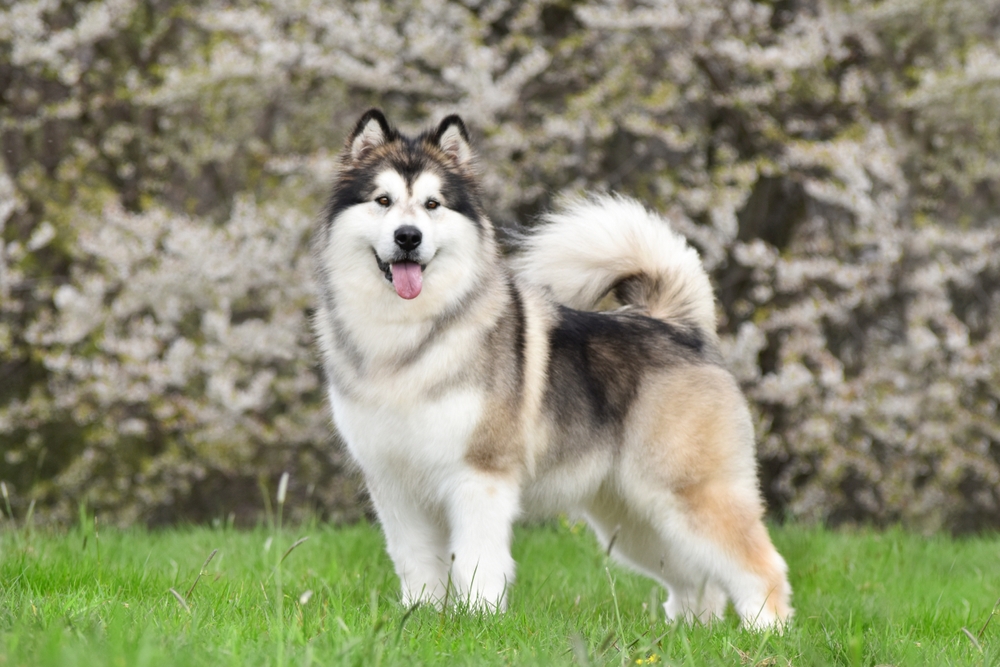
Alaskan Malamutes are known for their powerful build and wolf-like appearance, but they require an experienced owner who can handle their strong-willed nature. Their thick double coat requires regular grooming, especially during shedding seasons when they lose a significant amount of fur. Malamutes are also known for their independent and sometimes aloof personalities, which can make training a challenge. They require a confident owner who can establish themselves as the leader of the pack and provide consistent and positive training methods. Despite their grooming and personality needs, Malamutes are known for their loyalty to their families.
Socialization is crucial for Malamutes, as they can be wary of strangers and other animals if not properly introduced to new experiences. They also require regular exercise to keep them happy and healthy, making them ideal for active families who enjoy outdoor activities. Training a Malamute requires patience and consistency, as they can test their owner’s boundaries. Positive reinforcement methods work best, as they respond well to praise and treats. For those who can meet their demands, Malamutes make incredible companions and protective family members.
